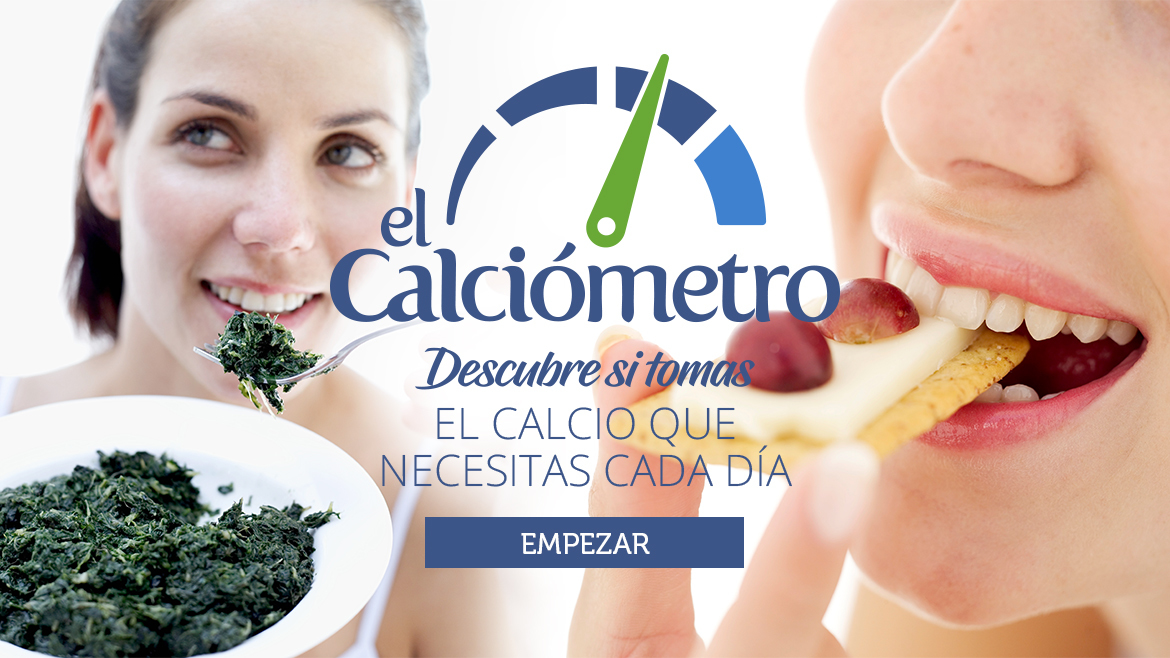BY EU STUDIO
Updated Wednesday, July 13, 2022-10:50
Share on Facebook
Share on Twitter
send by email
More than 80% of Spaniards do not consume the daily amounts of calcium.
At least among the more than 150,000 people who have already completed "The Calciometer", an online calculator that allows, quickly and easily, to know if the body really receives all the amount of this mineral that is so important for the bones... and health.
Adults, as a general rule, would need to consume 1,000 mg of calcium daily.
Growing children, pregnant women and nursing mothers, something else.
These daily needs can be met by foods rich in calcium such as milk and its derivatives and such as broccoli, cabbage or tofu;
or through drinks enriched in this mineral.
This calculator, designed by the Instituto Puleva de Nutrición, makes it possible to precisely assess the role of milk and dairy products in this recommended intake of calcium, but also of vitamin D. And the conclusive data is very interesting.
Only in the section of the population from 4 to 9 years of age are the calcium recommendations for the day met.
At these ages, more milk (classic or enriched) is consumed and more frequently and, therefore, it becomes the main source of calcium in the diet and is sufficient to cover needs.
In fact, it is the only section that takes the recommended calcium per day when consuming classic milk;
that is, whole milk, semi-skimmed or skimmed.
The rest of the age groups are clearly below the recommendations, close to 80%.
The case of pregnant women is worrying: only 67% at this stage comply with the recommendations.
This picture changes when the milk consumed is enriched with calcium.
In this case, the daily calcium recommendations are reached, with the exception of pregnant women who remain at 90% and women over 65 years of age.
Therefore, this adapted drink is positioned as a key when it comes to consuming all the mineral that the body needs day by day in all stages of life.
Two or three servings of dairy a day
That calcium is an essential nutrient to strengthen bones and help in their development is a lesson that many have assumed.
Although this mineral is also important for blood coagulation processes and for the functioning of muscles -including the heart-.
The same happens with vitamin D. For its part, it is not only important in the absorption of calcium, but also influences muscle tone.
Ángel Gil, Honorary President of the Ibero-American Nutrition Foundation, believes that Spaniards do not reach the recommended intake of calcium "because, in general, the consumption of dairy products is low."
The also professor of the Department of Biochemistry and Molecular Biology of the Faculty of Pharmacy of the University of Granada adds that "two or three servings a day -always depending on age- of dairy products" would be enough to get the perfect dose.
Thus, this common deficit in the population is a situation that can be reversed with a simple gesture.
But, according to studies, "there are many Spaniards who do not consume these minimum portions," adds Gil.
Fortified milk, keys to calcium intake
The cover letter of milk is full of benefits for the body.
In addition, thanks to its composition in vitamins, proteins and phosphorus, its absorption is better than other foods.
In other words, milk provides energy, but also essential nutrients for health such as calcium, zinc, magnesium, vitamin D or phosphorus.
"The ideal is to follow a varied and healthy diet, but, beyond consuming dairy products, cereals or vegetables, in people who do not drink enough milk, you can opt for enriched products", explains the professor.
The report "Milk as a vehicle for health in the population", prepared jointly by the Spanish Nutrition Foundation (FEN) and the Ibero-American Nutrition Foundation (FINUT), also warns of insufficient intake of these minerals.
In addition, it corroborates that this high percentage of the child and adult population with inadequate consumption, "forces us to identify useful dietary sources and resort to enriched or fortified foods."
These, like calcium-enriched milk, can be a great help to reach the recommended daily intake of calcium and a solution for those who require an extra supply of these nutrients.
An example: a glass of calcium-fortified milk contains 400 mg of calcium;
or what is the same, 40% of the recommended daily amount.
A change of trend
Of the total number of people surveyed through El Calciómetro, 60% have already taken measures to improve their situation by adding calcium-rich foods to their diet.
These adapted milks, in addition to providing extra calcium in the diet, incorporate a greater amount of vitamins D and K, both naturally present in classic milk, although to a lesser extent.
These vitamins are also important for the development and health of bone mass.
Therefore, choosing the right milk is a big step in taking care of the whole family.
Made by UE Studio
This text has been developed by UE Studio, a creative branded content and content marketing firm from Unidad Editorial, for INSTITUTO PULEVA DE NUTRICIÓN
Conforms to The Trust Project criteria
Know more

